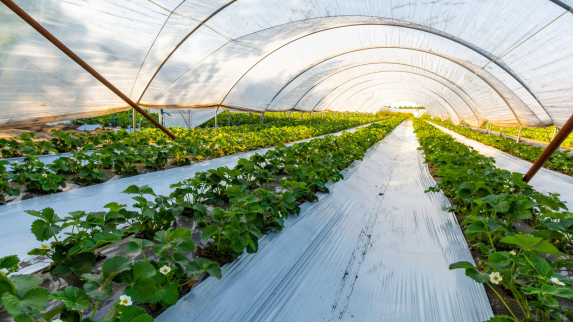Plastic use in agriculture must be reduced in order to mitigate pollution and prevent toxic chemicals from leaching into the soil and adversely affecting human health, according to a recently published study.
“Emerging data on leaching of toxic additives and tiny fragments from plastics called micro-nanoplastics into the water, ground, and air show impact on human health,” says Philip Demokritou, Henry Rutgers Chair and Professor at the Rutgers School of Public Health. “Petroleum-based plastics are not biodegradable and persist in the environment, with residues accumulating in the soil, and can also be taken up by plants as they break into tiny plastic particles and enter our food chain via trophic transfer.”
In an article published in Nature Communications Earth & Environment, Demokritou outlines the benefits and risks of using plastics in agriculture and identifies sustainable solutions that can be used to protect the environment and safeguard public health. To read the full story.

